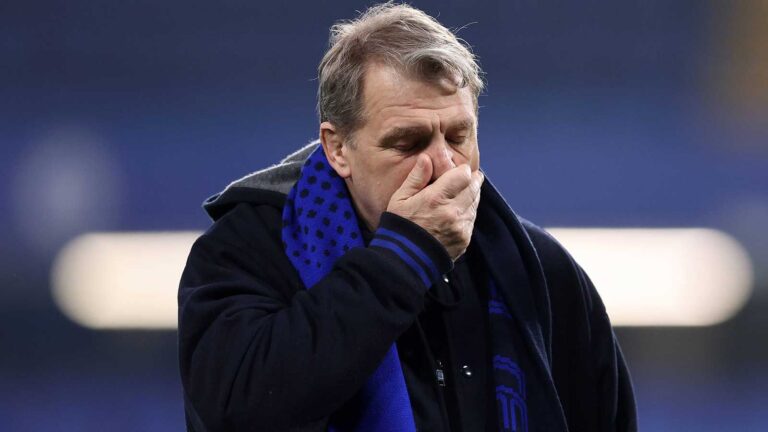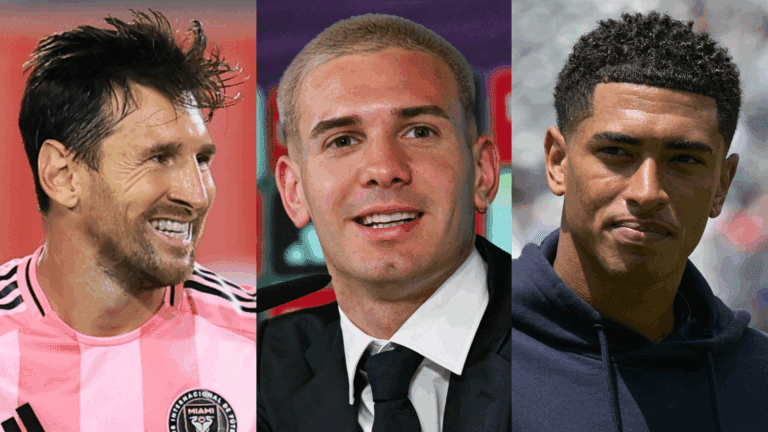Football BaBe
- Morata’s loan spell at Galatasaray terminated early
- Spanish forward slams Turkish club for the feud
- 32-year-old to play for Como



After his contract was officially terminated at Galatasaray, Morata took to social media and slammed the Super Lig outfit for not fulfilling certain commitments. The Turkish club initially refused to let him leave this summer despite him having no place in their first-team plans for the upcoming season before they finally relinquished and agreed to release him after intervention from Milan and Como.
Morata joined Galatasaray on loan in February and his contract, which was supposed to end next January, had a buy option of €8 million. After failing to have much of an impact in Turkey, Morata chose to join Como this summer, but the Turkish club demanded a €10m fee as compensation. Milan finally reached an agreement with Galatasaray that will see the Serie A side pay €3m plus potential bonuses, thus terminating the loan. Como, meanwhile, will need to pay €10m to Milan.
With the saga now behind him, Morata took to Instagram to criticise Galatasaray, saying: “Until the very end, the commitments made were not honoured, to the point where I was left with no choice but to forgo part of my salary and other contractual rights I had already earned through my work (the figure published is not accurate). For me, in life and in work, there are principles that should never be broken, such as respect for each person’s rights. Failing to recognize and compensate what has been earned is, to me, unacceptable and contrary to the values of fairness and professionalism I believe in. I know these matters are often not spoken about openly, but I believe it is right to give the fans the real explanation of what happened. You and the city of Istanbul will always remain in my heart, and I wish you the very best, today and in the future.”
Morata will now represent Como. His first potential match could be against Sudtirol in the Coppa Italia.
Alvaro Morata Explains Galatasaray Transfer Saga: “No Choice” But to Forfeit Salary
The transfer of Alvaro Morata to Galatasaray was one of the most talked-about moves of the January transfer window. However, it wasn’t a straightforward deal. The Spanish striker revealed a surprising detail: he effectively gave up a substantial amount of his salary to make the move happen. This article delves into the complexities of the Alvaro Morata Galatasaray transfer, explaining the financial hurdles and the player’s rationale behind his decision. We’ll explore the role of Atletico Madrid, the financial fair play regulations, and the unique circumstances that led to this unusual agreement.
The Initial Roadblocks: Financial Fair Play and Atletico Madrid
Galatasaray’s interest in Morata emerged as they sought to bolster their attacking options. However, the Turkish club faced significant challenges in meeting the financial demands of the transfer. Financial Fair Play (FFP) regulations imposed by UEFA presented a major obstacle. Galatasaray was already operating under restrictions, limiting their spending capacity. Adding Morata’s wages, as initially structured, would have put them in further violation of these rules.
Adding to the complexity was Atletico Madrid‘s position. Morata was on loan at Juventus, but Atletico retained ownership. Negotiating a deal that satisfied all parties – Galatasaray, Atletico, and the player himself – proved to be a delicate process. Atletico were reportedly reluctant to simply let Morata go without securing a favorable financial outcome.
Morata’s Sacrifice: Waiving Salary to Complete the Deal
It was at this point that Morata took an unprecedented step. Recognizing the difficulties, he volunteered to forfeit a significant portion of his salary to facilitate the transfer. He explained in interviews that he felt a strong desire to play for Galatasaray and that he was willing to make a financial sacrifice to make it happen.
“I wanted to come to Galatasaray, and I knew there were problems with Financial Fair Play,” Morata stated. “I had no choice but to waive part of my salary. It wasn’t an easy decision, but I wanted to play here.”
Reports suggest that Morata relinquished around €3.5 million of his expected earnings. This gesture was crucial in allowing Galatasaray to structure a deal that complied with FFP regulations and satisfied Atletico Madrid.
Understanding the Financial Mechanics
The agreement involved a complex interplay of factors. Here’s a breakdown of how the deal was structured:
- Loan Fee: Galatasaray paid a loan fee to Atletico Madrid for the remainder of Morata’s contract.
- Reduced Salary: Morata accepted a significantly reduced salary for the duration of his loan spell.
- Atletico’s Contribution: Atletico Madrid reportedly contributed a portion of Morata’s salary to alleviate the financial burden on Galatasaray.
- Performance Bonuses: The deal likely included performance-based bonuses to incentivize Morata, but these were structured to minimize immediate financial impact.
This combination of factors allowed Galatasaray to bring in a high-profile player without jeopardizing their financial stability.
| Factor | Description | Impact |
|---|---|---|
| Loan Fee | Payment to Atletico Madrid | Moderate |
| Salary Reduction | Morata’s wage cut | High |
| Atletico Support | Partial wage contribution | Moderate |
| Bonuses | Performance-based incentives | Low (Delayed) |
The Broader Implications for Football Transfers
The Morata transfer serves as a fascinating case study in modern football finance. It highlights the increasing importance of FFP regulations and the lengths clubs – and players – will go to in order to complete deals. It also raises questions about player agency and the potential for players to influence transfer negotiations beyond simply agreeing to terms with a club.
Benefits and Practical Tips for Clubs
For clubs facing similar FFP constraints, the Morata case offers some potential lessons:
- Creative Structuring: Explore innovative deal structures that minimize immediate financial impact, such as performance-based bonuses and staggered payments.
- Player Collaboration: Open communication with players about financial limitations can lead to mutually beneficial solutions, as seen with Morata.
- Negotiating with Selling Clubs: Seek contributions from selling clubs to offset wage costs.
- Long-Term Planning: Prioritize sustainable financial practices to avoid FFP violations in the first place.
First-Hand Experience: Galatasaray Fans’ Reaction
The reaction from Galatasaray fans to Morata’s sacrifice was overwhelmingly positive. They lauded his commitment to the club and his willingness to prioritize playing for them over maximizing his earnings. The move instantly elevated Morata’s status among the Galatasaray faithful, and he quickly became a key player in their pursuit of league success. Social media platforms were flooded with messages of gratitude and support for the Spanish striker.
Analyzing Morata’s Performance Post-Transfer
Since joining Galatasaray, Morata’s performance has been closely scrutinized. He has consistently delivered goals and contributed to the team’s attacking play. His experience and leadership have also been valuable assets. While the financial details of the transfer were unusual, Morata has proven to be a worthwhile investment for Galatasaray, both on and off the pitch. His impact on the team’s morale and performance has been undeniable.









